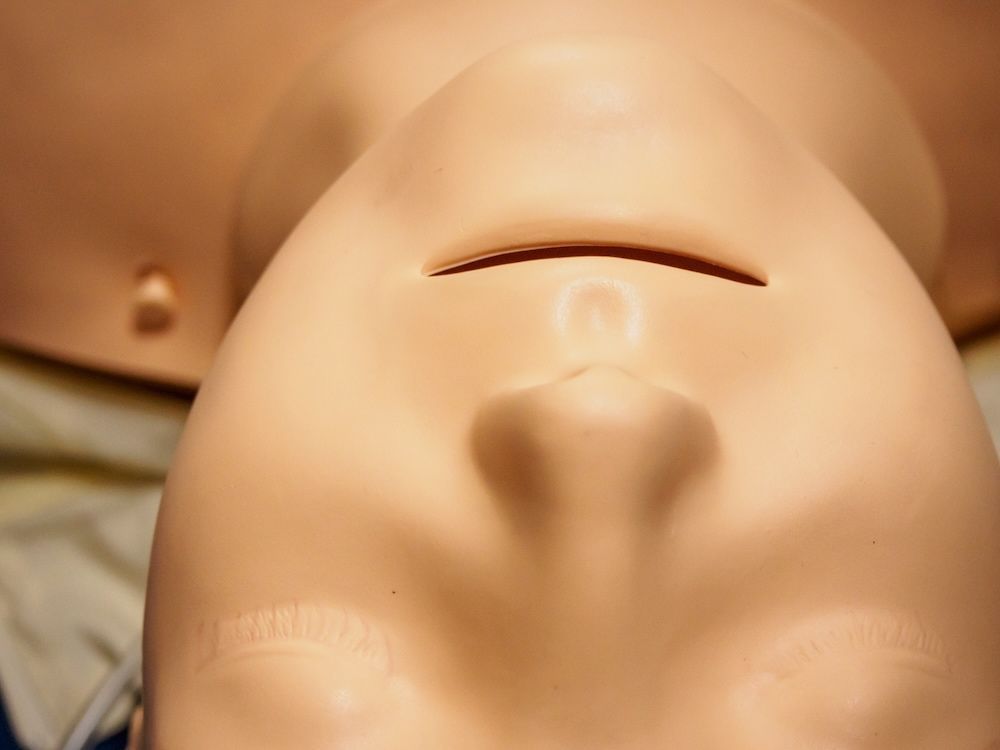The integration of teamwork outcomes into healthcare simulation is a powerful strategy to equip clinical simulation participants with teamwork skills in a controlled and immersive environment. Improved communication, team dynamics, leadership development and clinical outcomes all occur with focused, meaningful simulated training which enables for IPE teamwork. In this article written by Erin Carn-Bennett, MSN, RN, there will be an exploration of the significance of teamwork in healthcare simulation and practical strategies to incorporate teamwork educational outcomes into simulation-based education.
Real Communication Takes Real Practice
Healthcare simulation is the perfect modality for healthcare professionals to practice and enhance their teamwork skills. In the dynamic and fast-paced world of healthcare, effective teamwork can mean the difference between optimal or detrimental patient care outcomes. Collaborative and effective teamwork skills are essential for healthcare professionals to navigate complex patient cases in real life. When teamwork in healthcare works well, there is effective communication and the ability to make timely critical decisions together.Effective teamwork enhances patient safety, improves communication, and accelerates the ability to problem-solve. However, the diverse nature of healthcare roles, hierarchies, and communication styles can sometimes lead to challenges in how effective teamwork is achieved. To teach teamwork in healthcare can be a challenge due to several factors.
Healthcare teams consist of professionals with distinct expertise and roles, which can lead to varied perspectives and communication challenges. Notice the communication between participants, and during the debrief focus on how they communicated with each other and the impact on the outcomes in the scenario. During the scenario development, the simulation designer can add layers of challenges relating to communication with the addition of distressed family members or a simulated person as a patient.
With a clinical simulation in relation to an escalation of behavior, be clear in the scenario design of what the educational outcome should be for participants. Consider whether participants have had appropriate education and access to organizational information on this topic prior to the clinical simulation.
In clinical practice, time constraints can hinder effective communication and decision-making, which impacts the quality of teamwork. The design of healthcare simulation can add time pressure and realism of clinical care decisions to be made in real time. In debriefing, a focus on how the task overloaded the team or not. During the debrief, the facilitator can emphasize what teamwork elements were helpful or not in regards to teamwork and communication that played out in the scenario.
Role clarity is an impactful part of all successful clinical simulation scenarios and treatment of patients in any emergency. Role clarity is established through clear communication alongside closed-loop communication. In debriefing, a way to focus on role clarity is to ask if all team members had a role and then explore with curiosity the impact that this had on how the scenario played out.
Space for healthcare simulation participants to reflect on their teamwork, contribution to the scenario, and identify solutions for next time can be powerful in translation into improved patient care. As a facilitator of clinical simulation, make sure to focus the debrief on communication and teamwork skills that have led to improved patient outcomes by the team throughout the clinical simulation scenario.
Team Dynamics Takes Time to Practice
There are several complex dynamics at play in healthcare teams in a crisis. There is a lot of pressure on teams to work together effectively in real life, which can be replicated in healthcare simulation. An example to weave complexity into a clinical simulation scenario may include a scenario that requires a lot of medications, IV fluids, and airway, breathing, and circulatory support. The more complexities layered into the clinical simulation will mean that the team leader will have more pressure placed on them to make decisions and manage the resources within the team effectively while maintaining a global overview.
In healthcare, several different personalities, work styles, and responses to actual or perceived stress in an emergency scenario can make for variations in levels of interpersonal conflicts that can impact teamwork. Healthcare simulation is an excellent opportunity for team members to spend time together and unpack behaviors and the actions that occur as a result. When a clinical simulation debrief is psychologically safe, team members are able to be vulnerable if they feel comfortable and remove assumptions as to why they may have behaved in a certain manner.
The time to hear how the scenario felt for other team members can be powerful and may cause team members of all levels of experience to better understand others. The reaction phase can also be powerful to hear how certain behaviors have affected others, which may lead to more awareness in the future. Clinical simulation scenarios should be carefully crafted so that all team members from various experience levels can participate and learn from one another.
View the HealthySimulation.com LEARN CE/CME Platform Webinar How to Implement INACSL’s Healthcare Simulation Standards of Best Practice Into Your Program to learn more!
Nuture Leadership in a Safe, Controlled Environment
Healthcare simulation is the perfect environment to practice and unpack the power of a flattened hierarchy of leadership in crisis, and the impact this can have on patient outcomes. Hierarchies in healthcare may discourage junior members to speak up or contribute ideas, which can limit the team’s collective intelligence. An educational outcome of clinical simulation with a team leader who freely shares ideas and seeks feedback through a flattened hierarchical model can be powerful. This can be emphasized by focusing on leadership and the scenario’s impact in the debrief.
In the scenario design’s development phase, ensure that the healthcare simulation requires a collaborative decision-making approach. Scenarios should be realistic and accurate to current clinical challenges and encourage participants to collaborate to diagnose, treat, and manage patients. The participants in the clinical simulation should include a mix of healthcare professionals that are representative of real life in the healthcare simulation. Not only will this add to the realism of the scenario, but also make the clinical simulation relevant to the participants. This is because skills can be translated to real life after the clinical simulation. If there is more than one scenario in the allotted clinical simulation time, ensure that the leader role is swapped so there is a depth of learning from different leadership styles and the impact of this.
To build teamwork learning outcomes into healthcare simulation should be a strategic approach to enhance collaborative skills in healthcare professionals. The design of realistic scenarios, emphasis on effective communication, and debriefing for reflection empower participants to navigate complex clinical situations as a cohesive team. As healthcare continues to evolve, mastering teamwork through clinical simulation means that professionals have space to reflect on and hone their teamwork to evolve constantly.







